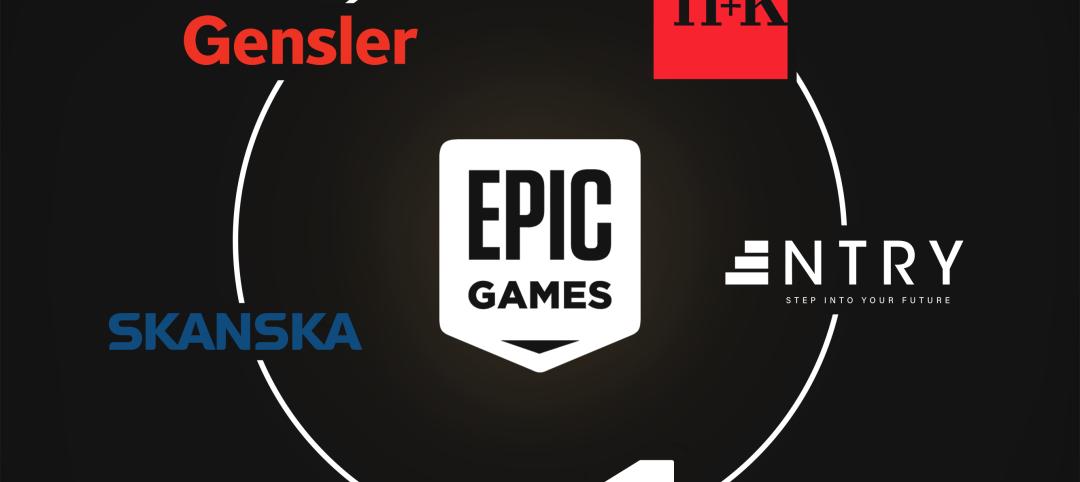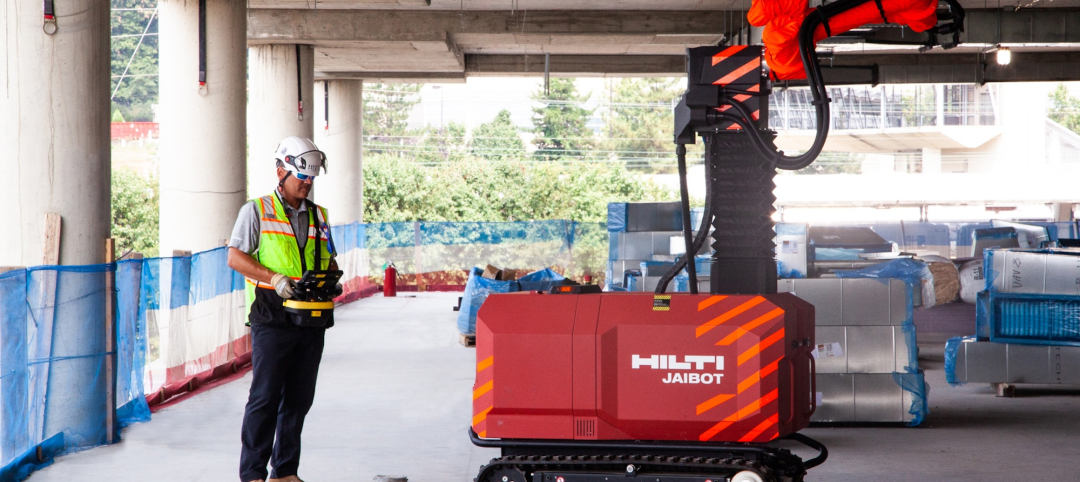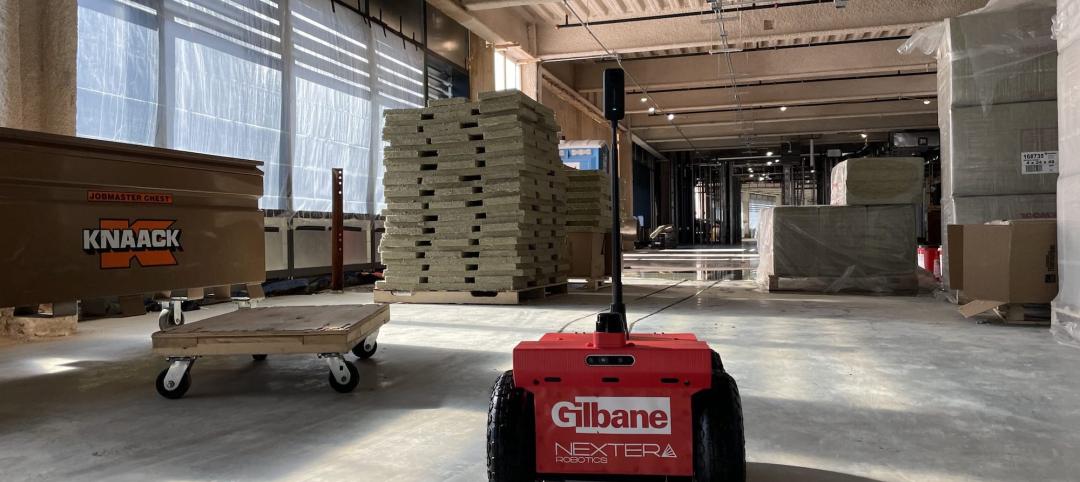KPMG, an organization of firms that provide audit, tax and advisory services, surveyed 100 U.S. building material manufacturing executives to understand what technological investments they had made—or were planning to make—and why.
These digital developments range from Building Information Management (BIM) integration to e-commerce and online delivery. Regardless of the method, KPMG pulled out four surprising insights from the results of the survey.
Overall, half of building product manufacturers plan to invest in one or more areas of technology in the next three years. The survey breaks down technology categories by product journey, from pre-sale, sale to shipping, operations, and post-sale groups. Pre-sale technology would include BIM systems and AR/VR design, for example.
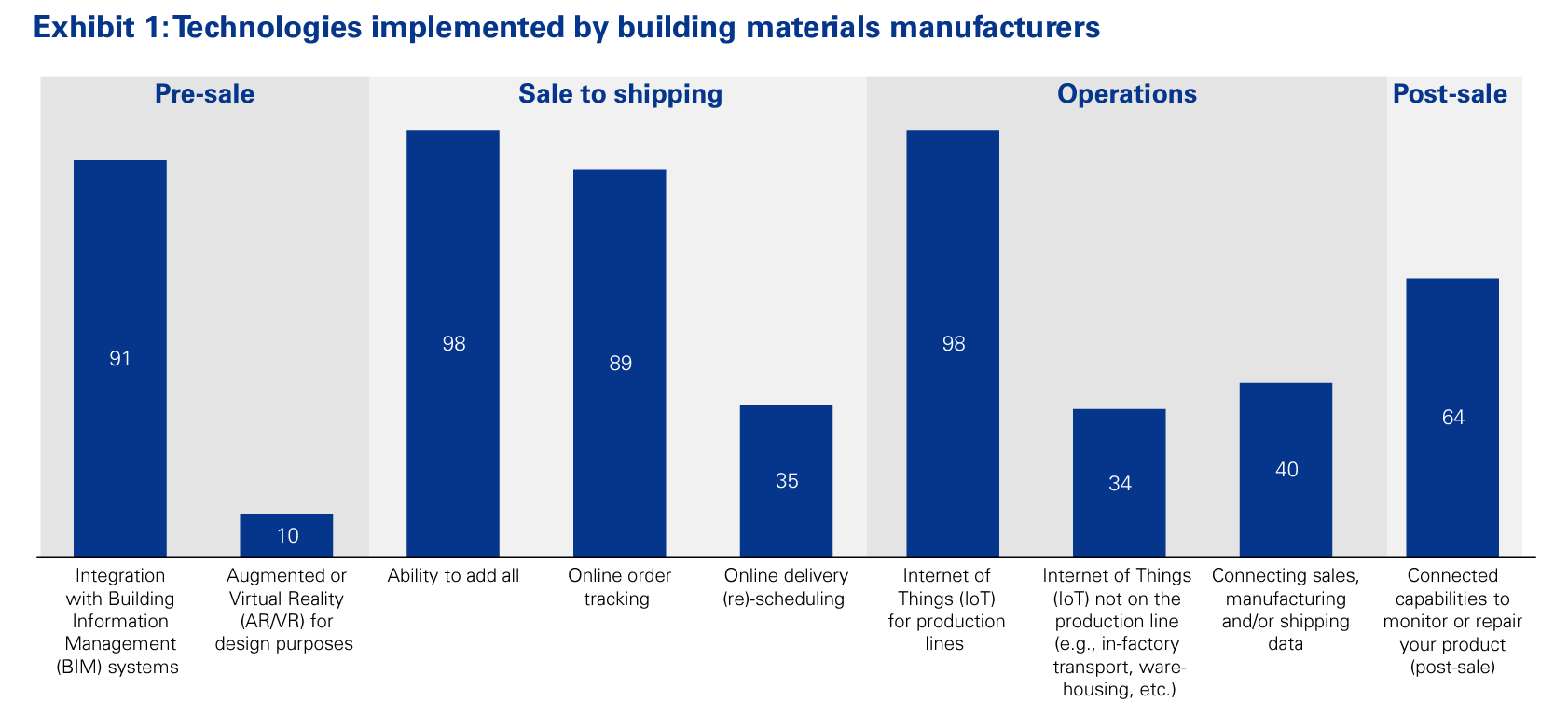
1. Connected capabilities can work without ‘smart’ products
In the study, KPMG expected to see post-sale connected capabilities to only be applicable to smart products, such as thermostats, security systems, and air conditioners. However, 42% of respondents that have already implemented such connected capabilities have no products with any smart features.
Likewise, 67% of respondents who plan to implement these technologies in the next three years said the same.
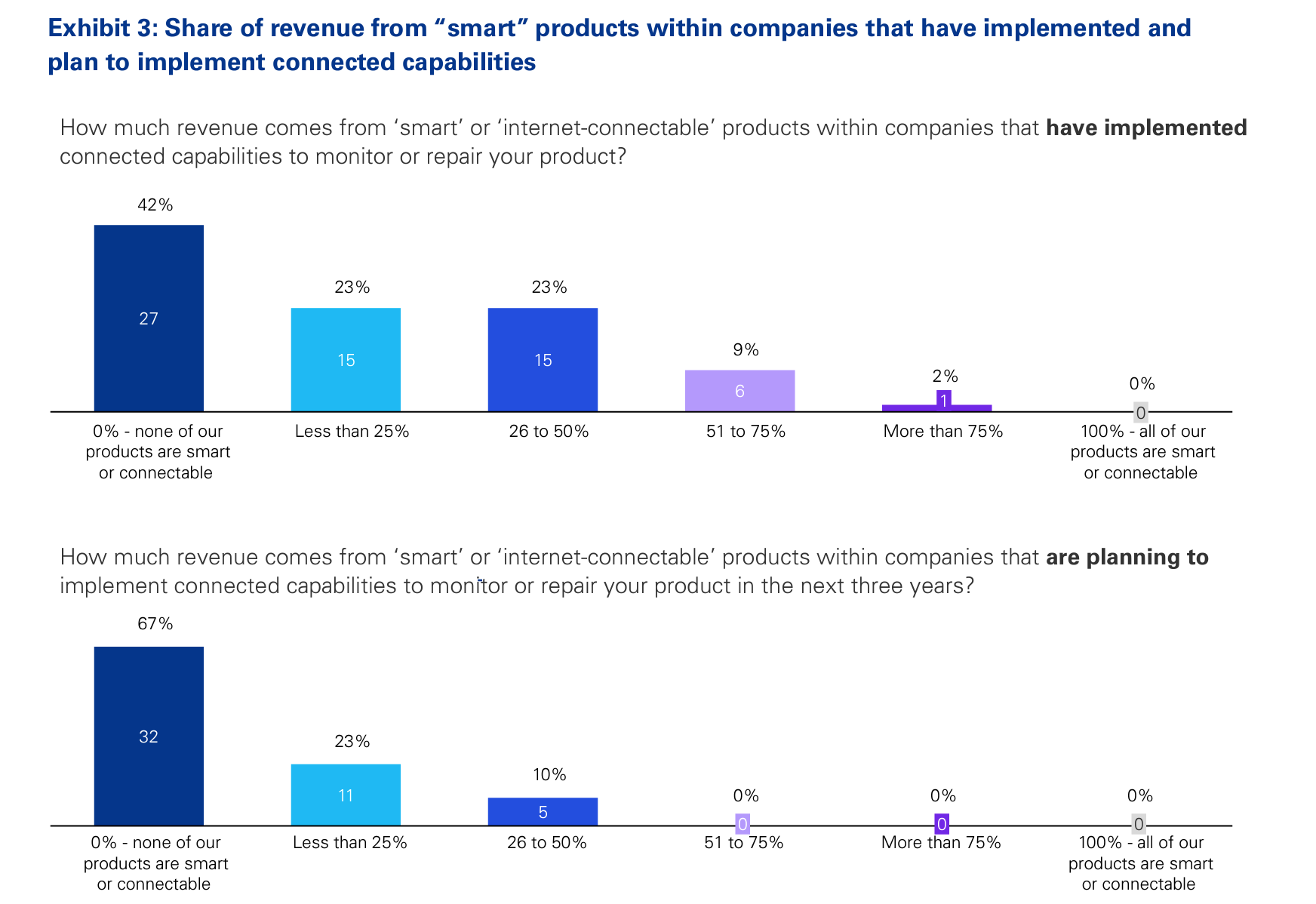
2. Technology can drive both revenue and cost benefits
What are the largest influences behind implementing new technologies? Over half (56%) of building materials manufacturers report cost savings as one of the biggest reasons. Forty-two percent attribute their influence towards the labor/talent shortage, while 75% of manufacturers planning to implement new technologies do so for a competitive advantage.
Alternatively, one-quarter (26%) of respondents listed ESG concerns as an influence, and just 22% said that customers were requesting it. KPMG finds that the reasons did not differ significantly across company types or types of technology.

3. AR/VR technology is in addition to—not a replacement for—outreach teams
Rather than displacing the role of sales support teams, AR/VR tech was found to be an additional tool for architects, engineers, and consultant outreach teams. The survey shows that 78% of companies investing in AR/VR and remote monitoring to help the pre-sale process have a dedicated support team.
This is above the general average of 50% of respondents with the same teams, but without AR/VR technology in place, according to the report.
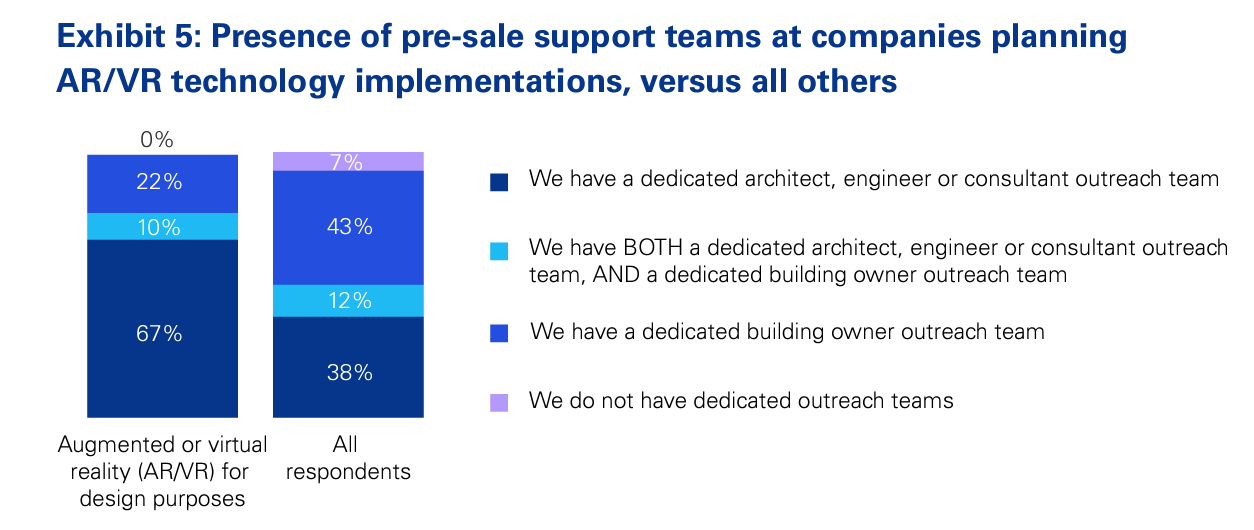
4. Companies overestimate their technological sophistication levels
When asked about their companies’ technological maturity compared to competitors, a majority of respondents (70%) believe they are more advanced than average. Only 9% believe their company is below average, but no respondents claimed to be “the least advanced of all our competitors in digital maturity.”
Furthermore, KPMG saw that the more technologies a company selected as “implemented,” the more likely they were to self-rate as being above average or best-in-class.

“While quantity certainly helps, quality of execution is a determining factor in how effective these technologies are,” says Serena Crivellaro and Len Prokopets, Managing Directors, Advisory, KPMG. “Unfortunately, with technological deployments being so broad-based across the industry, competitors may be more advanced than companies expect.”
Click here to view the entire report.
Related Stories
Modular Building | Mar 3, 2023
Pallet Shelter is fighting homelessness, one person and modular pod at a time
Everett, Wash.-based Pallet Inc. helped the City of Burlington, Vt., turn a municipal parking lot into an emergency shelter community, complete with 30 modular “sleeping cabins” for the homeless.
AEC Tech | Jan 27, 2023
Epic Games' latest foray into the AEC market and real estate industry
From architecture to real estate, the realm of computer-aided design hits new heights as more and more firms utilize the power of Epic Games’ Twinmotion and Unreal Engine.
AEC Tech | Jan 27, 2023
Key takeaways from Autodesk University 2022
Autodesk laid out its long-term vision to drive digital collaboration through cloud-based solutions and emphasized the importance of connecting people, processes and data.
AEC Tech Innovation | Jan 24, 2023
ConTech investment weathered last year’s shaky economy
Investment in construction technology (ConTech) hit $5.38 billion last year (less than a 1% falloff compared to 2021) from 228 deals, according to CEMEX Ventures’ estimates. The firm announced its top 50 construction technology startups of 2023.
AEC Tech | Jan 19, 2023
Data-informed design, with Josh Fritz of LEO A DALY
Joshua Fritz, Leo A Daly's first Data Scientist, discusses how information analysis can improve building project outcomes.
AEC Tech Innovation | Jan 14, 2023
CES recognizes a Dutch firm’s wearable technology for construction management
The firm’s TokenMe product offers construction managers a real-time crowd- and asset-tracking solution via low-power, location-aware radio and RFID tags and multiple sensors through which data are processed with cloud-based artificial intelligence.
Digital Twin | Nov 21, 2022
An inside look at the airport industry's plan to develop a digital twin guidebook
Zoë Fisher, AIA explores how design strategies are changing the way we deliver and design projects in the post-pandemic world.
Giants 400 | Nov 14, 2022
4 emerging trends from BD+C's 2022 Giants 400 Report
Regenerative design, cognitive health, and jobsite robotics highlight the top trends from the 519 design and construction firms that participated in BD+C's 2022 Giants 400 Report.
Contractors | Nov 14, 2022
U.S. construction firms lean on technology to manage growth and weather the pandemic
In 2021, Gilbane Building Company and Nextera Robotics partnered in a joint venture to develop an artificial intelligence platform utilizing a fleet of autonomous mobile robots. The platform, dubbed Didge, is designed to automate construction management, maximize reliability and safety, and minimize operational costs. This was just one of myriad examples over the past 18 months of contractor giants turning to construction technology (ConTech) to gather jobsite data, manage workers and equipment, and smooth the construction process.
BAS and Security | Oct 19, 2022
The biggest cybersecurity threats in commercial real estate, and how to mitigate them
Coleman Wolf, Senior Security Systems Consultant with global engineering firm ESD, outlines the top-three cybersecurity threats to commercial and institutional building owners and property managers, and offers advice on how to deter and defend against hackers.




